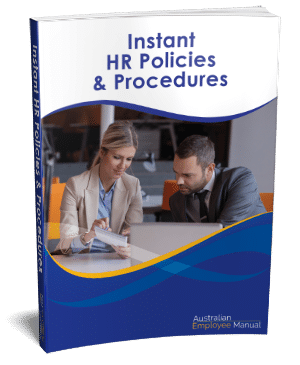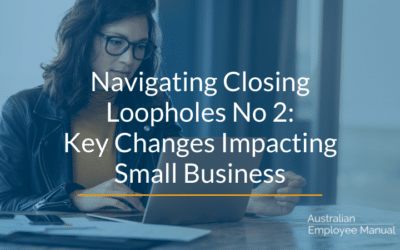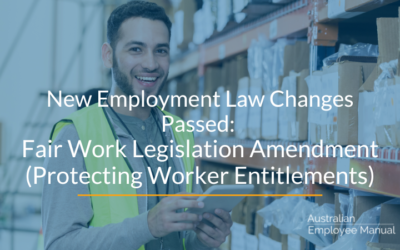One of the commonest errors we see small businesses make is believing that because they pay over the award minimum that their employees are award free. They also believe that many jobs within their business are not covered by awards, and therefore they can pay what they like.
Over-award contracts
Many employers pay their employees over award rates as a way to attract and retain quality staff.
However, just because someone has signed a contract with over-award rates, it doesn’t mean they are award free. Their minimum award conditions still apply even if you pay over the award rates.
If your over-award rate incorporates any rolled-up entitlements such as leave loading, you need to clearly spell this out in their contract to reduce confusion and potential claims down the track.
The bottom line is that any over-award contracts must leave the employee better off overall than if they just were paid their entitlements under the award and National Employment Standards.
Managers & Professionals
Historically, many managers & professionals were considered award free. Other common roles in the past that were thought of as award free were HR Managers, marketing employees, accounting & finance team members, legal staff and PR employees.
However, this is may or may not be correct. With the modern award system, many roles that previously were considered award free are actually covered by an award. You need to check case by case.
You need to check the classification definitions in:
- Relevant industry award
- Clerical award
- Professional award
- Miscellaneous award
If you are not sure, you can use the handy Fair Work Ombudsman tool to speed up your searching.
https://www.fairwork.gov.au/awards-and-agreements/awards/find-my-award
If after all your searching, you find that manager or professional is truly award free, then their pay & conditions need to be specified in a contract. They are entitled to the national minimum wage as well as all the National Employment Standards.
High-Income Employees
Awards don’t apply to high-income employees. These are people who earn more than the Fair Work threshold (currently $167,5000– July 2023) AND who get a written guarantee of those annual earnings.
When calculating earnings for coverage of these provisions, you need to exclude commissions, bonuses, overtime, reimbursements, statutory superannuation contributions from your calculations.
The pay & conditions of High-Income employees need to be specified in a contract.
Conclusion
Ensuring that you are paying all your employees correctly is an essential part of running a business. It is also incredibly complex. When in doubt, contact a specialist HR Consultancy or Employment Relations Consultancy firm in your local area to have them review your pay rates, awards and contracts to ensure you are complying with all legislative requirements.




